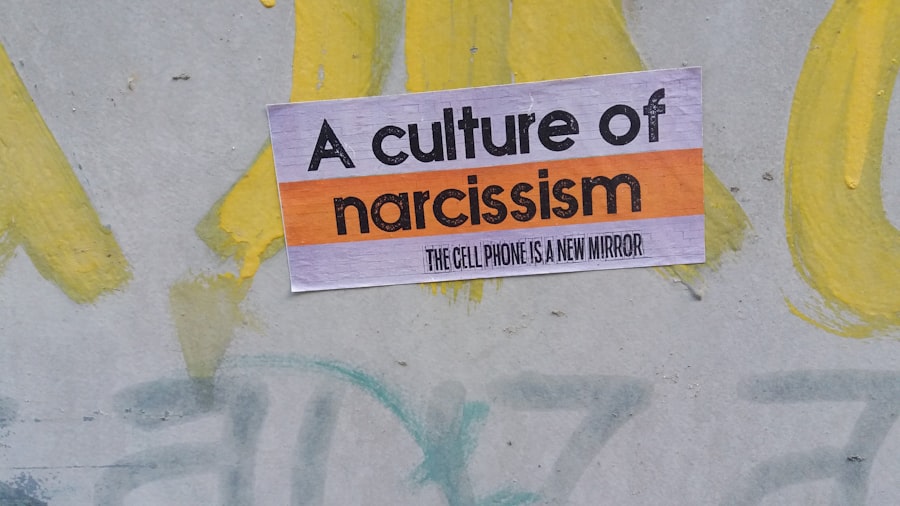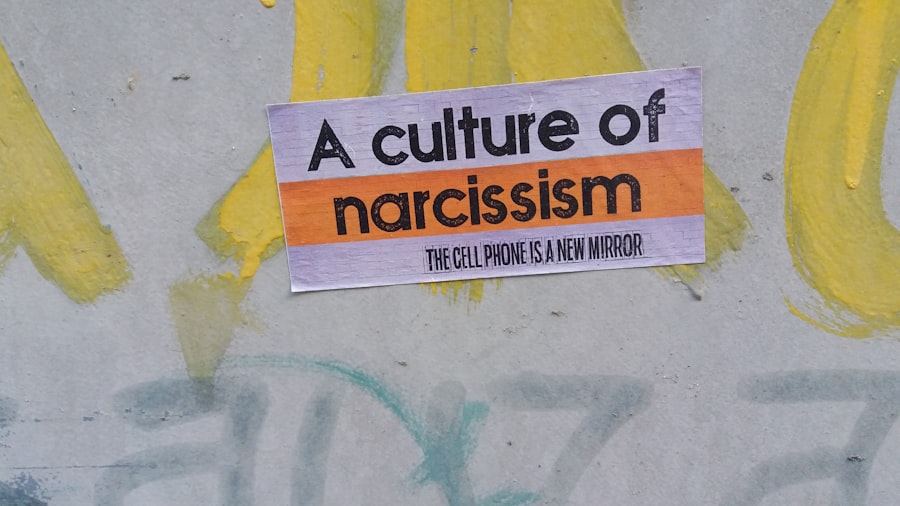You may have encountered the term “cult of personality” in discussions about influential leaders or charismatic figures. This phenomenon occurs when a public figure, often a political leader, is elevated to an almost god-like status through mass media and propaganda. The cult of personality thrives on the emotional connection that individuals develop with these figures, often overshadowing rational thought and critical analysis.
As you delve deeper into this topic, you will discover how these dynamics shape societies and influence the course of history. Understanding the cult of personality is crucial in today’s world, where charismatic leaders can sway public opinion and mobilize masses. You might find it fascinating to explore how these leaders manipulate their image and cultivate loyalty among their followers.
By examining historical examples and the psychological underpinnings of this phenomenon, you can gain insight into the mechanisms that allow such figures to rise to power and maintain their influence over time.
Key Takeaways
- The Cult of Personality refers to the phenomenon where a leader’s image is glorified and worshipped, often to the detriment of rational discourse and critical thinking.
- Historical examples of the Cult of Personality include figures like Joseph Stalin, Mao Zedong, and Kim Jong-un, who used propaganda and manipulation to cultivate an aura of infallibility and power.
- Characteristics of a Cult of Personality include the leader’s omnipresence in public life, the suppression of dissent, and the promotion of a narrative that portrays the leader as a savior or hero.
- The power dynamics of a Cult of Personality often result in the concentration of power in the hands of the leader, leading to authoritarianism and the erosion of democratic institutions.
- Psychological factors behind the Cult of Personality include the human tendency to seek strong leaders, as well as the influence of propaganda and social conditioning on individual beliefs and behaviors.
- The impact of a Cult of Personality on society can be profound, leading to the stifling of dissent, the erosion of civil liberties, and the perpetuation of a culture of fear and blind obedience.
- The role of media in cultivating a Cult of Personality is significant, as it can be used to propagate the leader’s image and suppress alternative narratives, contributing to the leader’s mythos.
- Resisting the influence of a Cult of Personality requires critical thinking, media literacy, and the promotion of independent thought and diverse perspectives.
- Ethical considerations in cultivating a Cult of Personality include the manipulation of public opinion, the erosion of truth, and the exploitation of vulnerable populations for political gain.
- The intersection of politics and the Cult of Personality highlights the ways in which leaders use charisma and image to consolidate power and maintain control over the populace.
- Navigating the influence of the Cult of Personality requires vigilance, skepticism, and a commitment to upholding democratic values and individual autonomy.
Historical Examples of the Cult of Personality
Throughout history, numerous leaders have exemplified the cult of personality, each leaving a distinct mark on their respective societies. One of the most notable examples is Joseph Stalin, whose reign in the Soviet Union was characterized by an intense glorification of his image. You may recall how Stalin’s portrayal as a heroic figure was meticulously crafted through state-controlled media, art, and education.
His image was omnipresent, from posters to films, creating a narrative that positioned him as the savior of the nation. This manipulation of public perception not only solidified his power but also instilled a sense of loyalty among the populace. Another striking example is North Korea’s Kim dynasty, particularly Kim Il-sung and his son Kim Jong-il.
You might find it intriguing how the regime has perpetuated a narrative that elevates these leaders to divine status. The use of propaganda, coupled with strict control over information, has created a society where dissent is virtually nonexistent. The cult of personality surrounding the Kim family has not only maintained their grip on power but has also shaped the identity of North Korea itself.
By examining these historical instances, you can better understand how the cult of personality operates across different contexts and cultures.
Characteristics of a Cult of Personality

As you explore the characteristics that define a cult of personality, you will notice several common traits that emerge across various leaders and movements. One prominent feature is the use of propaganda to create an idealized image of the leader. This often involves exaggerating their accomplishments while downplaying or completely ignoring their failures.
You may recognize this tactic in contemporary politics, where leaders often present themselves as infallible figures who possess unique insights and abilities. Another characteristic is the establishment of a strong emotional connection between the leader and their followers. This bond is often cultivated through public speeches, rallies, and personal anecdotes that resonate with people’s hopes and fears.
You might observe how this emotional appeal can lead individuals to overlook critical flaws in the leader’s policies or character. The ability to evoke strong feelings—whether it be admiration, loyalty, or even fear—plays a crucial role in maintaining the cult-like devotion that surrounds these figures.
The Power Dynamics of a Cult of Personality
| Aspect | Metric |
|---|---|
| Charismatic Leader | Level of charisma and influence |
| Followers | Number of devoted followers |
| Power Structure | Hierarchical organization of power |
| Control Tactics | Methods used to maintain control |
| Impact on Members | Psychological and emotional effects on members |
The power dynamics inherent in a cult of personality are complex and multifaceted. At its core, you will find a relationship built on dependency; followers often rely on the leader for guidance, validation, and a sense of purpose. This dependency can create an environment where dissent is not only discouraged but actively punished.
You may notice how this dynamic fosters an atmosphere of conformity, where individuals feel compelled to align their beliefs with those of the leader to maintain social acceptance. Moreover, the leader’s power is often reinforced by a network of loyal supporters who benefit from their position. These individuals may hold key roles within government or organizations, further entrenching the leader’s authority.
You might find it interesting how this creates a feedback loop: as the leader’s power grows, so does the loyalty of their supporters, which in turn strengthens the leader’s position. This intricate web of relationships illustrates how a cult of personality can perpetuate itself over time, making it increasingly difficult for alternative voices to emerge.
Psychological Factors Behind the Cult of Personality
Delving into the psychological factors that contribute to the cult of personality reveals a fascinating interplay between individual and collective behavior. One significant aspect is the human tendency to seek out strong leaders during times of uncertainty or crisis. You may find it compelling how individuals often gravitate toward charismatic figures who promise stability and direction when faced with chaos.
This desire for guidance can lead people to overlook red flags or contradictory evidence about a leader’s character or policies. Additionally, cognitive biases play a crucial role in reinforcing loyalty to a leader. For instance, confirmation bias leads individuals to seek out information that supports their existing beliefs while dismissing contradictory evidence.
You might recognize this phenomenon in your own experiences or observations; it can be challenging to confront information that contradicts your views, especially when those views are tied to a beloved leader. Understanding these psychological mechanisms can help you navigate your own perceptions and interactions with influential figures.
Impact of a Cult of Personality on Society

The impact of a cult of personality on society can be profound and far-reaching. One significant consequence is the erosion of democratic principles and institutions. When a leader becomes synonymous with the state itself, you may notice how dissenting voices are silenced or marginalized.
This can lead to an environment where critical thinking is stifled, and citizens become passive recipients of information rather than active participants in governance. Moreover, the cult of personality can foster division within society. As followers rally around their leader, you might observe how opposing viewpoints are demonized or dismissed outright.
This polarization can create an “us versus them” mentality that undermines social cohesion and fosters conflict. The consequences can be dire; societies may become increasingly fragmented, making it difficult for individuals to engage in constructive dialogue or find common ground.
The Role of Media in Cultivating a Cult of Personality
Media plays an instrumental role in cultivating and sustaining a cult of personality. In today’s digital age, you may find it fascinating how social media platforms amplify charismatic leaders’ messages and images, allowing them to reach vast audiences instantaneously. The ability to curate one’s image online enables leaders to present themselves in ways that resonate with their followers while controlling narratives about their actions and policies.
Furthermore, traditional media outlets often contribute to this phenomenon by sensationalizing stories about influential figures. You might notice how news coverage can sometimes blur the line between reporting and glorification, creating an environment where leaders are portrayed as larger-than-life characters. This media landscape not only shapes public perception but also reinforces the emotional connection between leaders and their followers, making it increasingly challenging for alternative viewpoints to gain traction.
Resisting the Influence of a Cult of Personality
Resisting the influence of a cult of personality requires critical thinking and self-awareness. As you navigate your interactions with charismatic figures, it’s essential to cultivate a mindset that encourages questioning rather than blind acceptance. You might consider seeking out diverse perspectives and engaging in discussions that challenge your beliefs.
By doing so, you can develop a more nuanced understanding of complex issues and avoid falling prey to manipulative rhetoric. Additionally, fostering media literacy is crucial in today’s information-saturated environment. You may find it beneficial to evaluate sources critically and discern between objective reporting and biased narratives.
By honing your ability to analyze information critically, you can better resist attempts to manipulate your perceptions and maintain your autonomy in decision-making.
Ethical Considerations in Cultivating a Cult of Personality
The ethical implications surrounding the cultivation of a cult of personality are significant and warrant careful consideration. On one hand, you may recognize that charismatic leaders can inspire positive change and mobilize communities toward common goals. However, this potential for good must be weighed against the risks associated with unchecked power and manipulation.
As you reflect on these ethical considerations, it’s essential to question whether elevating any individual to such heights serves the greater good or undermines democratic principles. You might consider how accountability mechanisms can be established to ensure that leaders remain answerable to their constituents rather than becoming isolated figures above scrutiny.
The Intersection of Politics and the Cult of Personality
The intersection between politics and the cult of personality is particularly pronounced in contemporary society. You may observe how political campaigns often rely on charismatic figures who can connect emotionally with voters. This reliance on personal appeal can overshadow substantive policy discussions, leading to elections based more on image than on ideas.
Moreover, as political polarization intensifies, you might find it concerning how cults of personality can exacerbate divisions within society. Leaders who cultivate strong emotional ties with their base may resort to divisive rhetoric that alienates opposing viewpoints rather than fostering dialogue. Understanding this intersection allows you to critically assess political landscapes and recognize when charisma may be prioritized over competence or integrity.
Navigating the Influence of the Cult of Personality
As you reflect on the influence of the cult of personality in various contexts, it’s clear that navigating this phenomenon requires vigilance and discernment. By understanding its historical roots, psychological underpinnings, and societal impacts, you can better equip yourself to engage critically with charismatic figures in your life—be they political leaders or influential personalities in other domains. Ultimately, fostering an environment where critical thinking thrives is essential for resisting manipulation and promoting healthy discourse.
By remaining aware of the dynamics at play within cults of personality, you can contribute to a more informed society that values accountability over adoration and reason over rhetoric. In doing so, you empower yourself and others to navigate the complexities of influence with clarity and purpose.
The concept of a cult of personality is a fascinating psychological phenomenon where a public figure, often a political leader, is presented in an idealized and heroic manner, fostering an unquestioning loyalty among followers. This topic is explored in depth in various psychological studies and articles. For those interested in delving deeper into the psychological underpinnings of such phenomena, a related article can be found on the Unplugged Psych website. This article provides insights into how personality cults are formed and maintained, drawing on historical and contemporary examples. You can read more about it by visiting this




